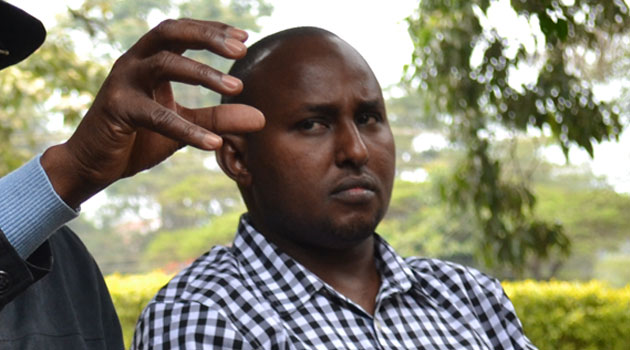KISII, Kenya, Jun 5 – Talking of the 21st century young girls in the African communities are still facing the consequences of stigma due to menstrual poverty, this can negatively impact the self-esteem, mental health, and their wellbeing.
For Decades, menstrual stigma has hindered educational and economic opportunities for women and girls in Africa perpetuating gender inequality.
Traditionally, the Menstrual topic is often considered a taboo, many girls at puberty and women are taught to be secretive about their periods.
This silence and shame contribute to a culture of stigma and can make it difficult for them to seek support or discuss their menstrual health openly.
According to World Bank report on menstrual health and hygiene, more than 300 million women worldwide are menstruating.
With a total estimate of 500 million lacking access to menstrual products and adequate facilities for menstrual hygiene management (MHM).
Menstrual stigma can hinder girls’ participation in school activities.
As many may miss school or drop out altogether due to lack of access to menstrual products, inadequate sanitation facilities, or fear of being teased or shamed by peers.
This can have long-term effects on their education, opportunities, and future prospects.
Elizabeth Moraa a teacher at Nyamonema primary school says young girls receiving their menstrual periods for the first time find it hard to accept the changes in their bodies.
“Some of them even cry seeing blood from their bodies, isolate themselves from other pupils and even say they are sick and they need medical care because they believe that menstrual is shameful and disgusting,” Says Moraa.
More often, some girls receiving their periods would remain seated in class for fear of blood stains on their uniforms and female teachers are called by girls who have experienced periods to council, guild to prepare them on the changes on their bodies and what they should do when such changes occur.
on many occasions, girls having their periods for the first time would miss classes and stay at home till the periods are over, they find it hard to cope with changes in their bodies and fascinate it in their minds.
“Those girls who have experienced what menstrual cycle is, they would lend their pads or go and ask for help from female teachers to intervene in helping those having periods for the first time,” says Moraa.
Some girls come from vulnerable backgrounds and menstrual poverty poops on their lives, getting a pad during their periods is very difficult, in such a time, those girls stay at home for close to three days to avoid blood stains seen by their fellow pupils, till there is lighter flow which is easy to manage.
Unfortunately, a number of these young girls are not taught by their parents or guardians what menstrual is because the women is the society are conditioned to think that menstrual is shameful and they should not be discussed.
Robert Rachami a Director a Grace Community Center in Kisii which deals with washable sanitary kits for menstrual hygrine says he started this community-based organization to safe young girls from menstrual poverty.
Rachami says, the CBO makes washable sanitary towels which can be washed and reused for up to three years, the kit contains three towels with special pockets to keep the used ones and the unused ones.
“Since the start of our community-based organization, we have distributed 12,000 washable sanitary towels to young girls solid up to 25,000 towels,” says.
Thomas Oirere head of public health in Kisii during the celebration of menstrual day, says the event was to sensitize the community on menstrual topic which is rarely spoken outwardly because of the culture believes.
Menstrual is a normal process for human beings for population growth, however, taboo and culture have misconceptions and myths which makes menstrual topic shameful and disgusting.
In Kisii at least 365,000 to 400,000 women and girls receive their periods every month and many of them have no access to sanitary pads.
“We are in the process of setting up a plant to manufacture disposable and biodegradable sanitary pads which can be used for more than a year and we are targeting school girls and institutions,” says Oirere.
The county government is committed to end stigma against women and young girls by participating in community activities and sanitize them on ending menstrual stigma.
Elizabeth Nyabicha Health Head of Mertanal Health in Kisii says they are committed to ensure girls and women are under conducive environment when having their menstrual periods and also end stigma.
Every month women receive their periods; these women face challenges of having sanitary towels to sustain them for the days they are on their periods.
“We are committed to end culture believes whereby women on their menstrual cycle are prohibited from entering religious spaces, preparing food, or participating in social events, this exclusion reinforces the idea that menstruation is impure or unclean.
Kisii County Women representative Doris Aburi says Inadequate knowledge about menstruation has led to misunderstandings and perpetuate stigma. Cultural and religious beliefs, as well as misconceptions about hygiene or cleanliness, has further contribute to the stigma.
The women rep donated sanitary towels to school going girls which will push them for months and relieve them from stigma when on their periods while facing menstrual poverty.
She said African culture has made many to belief on negative societal attitudes, beliefs, and stereotypes associated with menstruation. It can have significant impacts on women and girl’s psychology, influencing their self-esteem, body image, and overall mental well-being.
“We are advocating for free pads from our government, we should enact this into a law to free our women and girls from menstrual poverty and provide a conducive environment for them,” says the women rep.
She argued, the government is providing free condoms but doesn’t care providing free sanitary towels and all stakeholders participate in creating inclusive and supportive environments where open discussions about menstruation are encouraged, providing access to menstrual hygiene products, and challenging harmful stereotypes and taboos surrounding menstruation.
David Omambia a psychologist at Kisii University says fear of leaks, stains, and odors associated with menstruation can cause anxiety and distress in girls. They may worry about being exposed or humiliated, which can lead to social anxiety and avoidance of certain activities such as games and sports.
“Due to the stigma many girls feel the need to keep their periods a secret and avoid discussing them openly. This can create a sense of isolation and silence, as well as prevent them from seeking support and accurate information about menstruation,” says Omambia.
United Nations International Children’s Emergency Fund (UNICEF) recently launched ‘Oky Kenya’, an adapted version of the world’s first period tracker offline app, designed for girls living in the sub-Saharan Africa.
The ‘Oky Kenya’ provides girls with evidence-based information about their periods in fun, creative and positive ways with features such as individualized period cycle trackers and calendars, tips, and menstruation information and it also functions offline; designed to work on lower-end smartphones, and is entirely free, without advertisements.
Shaheen Nilofer, UNICEF Representative to Kenya says, the app was developed after increasingly been searching on digital platforms on the important questions about their menstrual health without getting correct information.
The app will empower girls to take control of their health and help them to dispel the myths and misconceptions on menstruation that lead to menstrual stigma.

























































